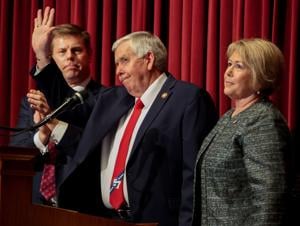
After a long delay, a tripartite panel comprising the government, the employers and employees has reached a compromise on a minimum wage hike, calling it a "minimum wage adjustment". Taking effect on Jan 1, wages will increase an average 2% for the larger part of the country, while the highest rate of 400 baht per day will apply in four provinces -- Phuket, Chachoengsao, Chon Buri, and Rayong and Koh Samui district in Surat Thani. Last April, the increase was limited to those working in the tourism industry in the four touristy provinces.
Looking at it in more detail, wages for workers in Muang Chiang Mai and Hat Yai districts will rise to 380 baht, while workers in Bangkok and six adjacent provinces will get a minimum wage of 372 baht. For the remaining 67 provinces in the country, it's a 2% rise across the board. The government pushed hard for a wage hike as a "New Year's gift" to complete its election promises.

A 400-baht daily wage (increasing further to 600 baht by 2027) was a key part of the ruling party's flagship campaign policy. Past meetings of the tripartite panel collapsed due to opposition on the part of employers who feared the adverse impact of higher wages on production costs, sales and ultimately jobs. It's undoubtedly a dilemma.
A wage increase, while good for workers, will no doubt hurt the country's competitiveness. A delicate balance has to be struck, and the government must face the reality that even with wage rises in place, extra help with welfare, investment promotion and on the policy front may be needed. Some factories have moved offshore to countries with lower wages and a better investment atmosphere in recent months.
Factory closures, of course, mean unemployment for workers. As economists will argue, a nationwide wage increase could also push up inflation which is already high, especially when state agencies lack a strong price control mechanism. That could hit workers and the unemployed alike.
Against that, a sum of 372 baht a day for Bangkok workers, most of whom pay rent and high transport costs, is hardly enough to help make ends meet. It is harder still for workers with children. Balancing up all these factors, what the government can do right away is to provide more help in the form of welfare, such as free bus services or food vouchers, which could ease people's plight.
It must take steps to effectively control the cost of living. On a broader level, the government must pay heed to concerns by the Thai Chamber of Commerce (TCC) and the Board of Trade of Thailand over the need for measures to mitigate any effects on the economy from the wage rise. It must also do more to improve the investment climate to help struggling businesses and attract new ones.
Laws must be examined to see if they hinder trade and investment. Incentives will be needed to ensure fair production costs with a view to strengthening the country's competitiveness. Some production factors, like expensive electricity fees, result from a failed energy policy, which needs to be addressed separately.
The task ahead requires coordination and integration among ministries and a strong commitment on the part of the government to ensure all systemic weaknesses are addressed..















